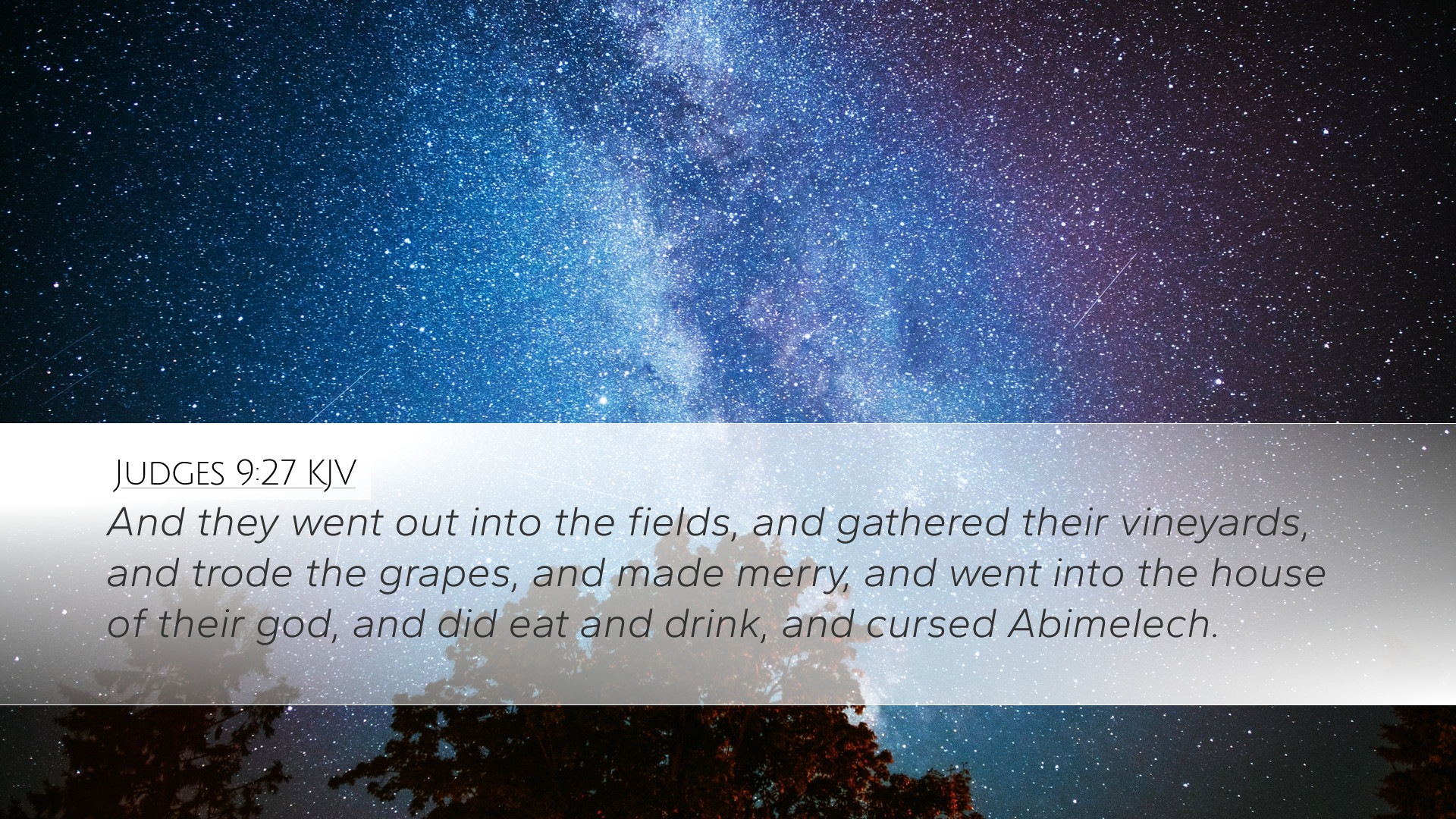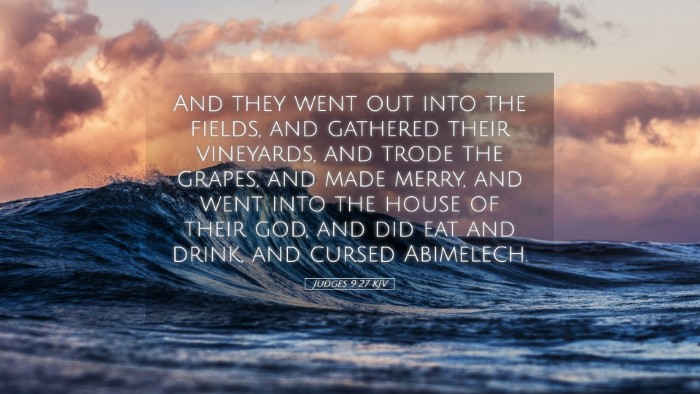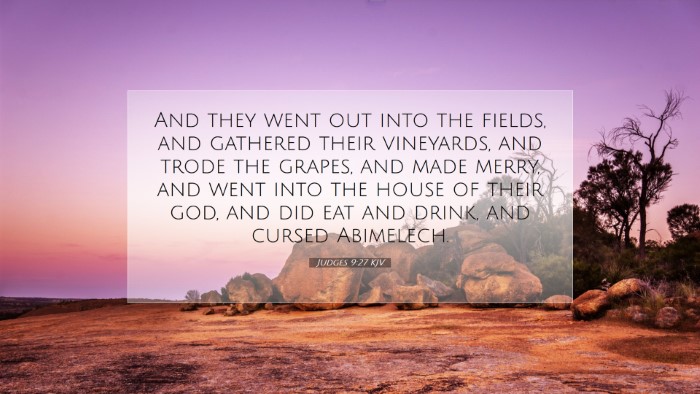Commentary on Judges 9:27
Judges 9:27 states: "And they went out into the fields, and gathered their vintage, and trod the grapes, and made merry, and went into the house of their god, and did eat and drink, and cursed Abimelech." This verse provides a vivid depiction of social life and worship during the time of the Judges in Israel, offering various layers of meaning and implications worth exploring.
Overview of the Context
This passage is situated within the broader narrative of Abimelech’s rise to power and the consequent strife among the people of Shechem. Judges 9 recounts Abimelech's treachery and ambition, highlighting themes of leadership, divine justice, and the struggles of the Israelites during the chaotic period of the Judges. The verse captures a moment of revelry, juxtaposed with the cursing of Abimelech, illustrating the people's deeper discontent.
Analysis of Gatherings and Revelry
According to Matthew Henry, this verse illustrates a common practice among the Israelites, where the gathering of vintage (grapes and fruits) was often a communal activity associated with festivity and thanksgiving. This merriment, however, stands in stark contrast to the political turmoil of the time. Henry notes that the act of making merry suggests a temporary diversion from the prevailing issues, indicating a disconnect between the people's joy and their political reality.
Cultural Significance of Vintage Harvest
Albert Barnes provides insight into the import of seasonal harvest. In ancient Israel, the vintage season was characterized by significant cultural and religious implications. The act of gathering vintage was not merely agricultural; it was intertwined with worship practices and communal identity, as the harvest was often accompanied by festivities in gratitude to God for His provision. The merriment denotes not only joy over the harvest but could imply a false sense of security or distraction from malevolent leadership.
Worship Practices and Idolatry
Notably, the mention of going "into the house of their god" indicates an essential aspect of Israelite worship. Adam Clarke remarks that the reference to a 'house of their god' suggests the possibility of idolatrous practices among the Israelites, as they might have imported worship styles common in surrounding nations. Clarke also emphasizes that this worship was hypocritical; while partaking in festivities, they cursed Abimelech, reflecting a divided allegiance. This duality emphasizes the moral failures that plagued the Israelites during the period of the Judges.
Implications of Cursing Abimelech
In the same breath of merriment, this verse captures the pivotal turning point of internal animosity against Abimelech. Matthew Henry highlights that cursing Abimelech not only exhibited their discontent with his leadership but also their recognition of his corrupt practices. This sentiment foreshadows the eventual downfall of Abimelech, underscoring a key biblical theme: the inevitable consequences of tyrannical leadership and divine retribution against the wicked.
Theological Reflections
Judges 9:27 encapsulates themes pertinent for theological reflection. It invites a discourse on the nature of true worship contrasted with hypocrisy. The actions of the Israelites prompt a deeper understanding of how community practices can reflect underlying spiritual realities. As Albert Barnes suggests, the merriment and the act of cursing reveal a tension between cultural identity and faithfulness to God.
- Divine Justice: The narrative serves as a reminder that God's justice will ultimately prevail, contrasting the temporal joys of the wicked with long-term divine judgment.
- The Role of Leadership: It highlights how the corrupt nature of leadership can lead to discontent within a community, often culminating in rebellion against injustice.
- Idolatry vs. True Worship: The blend of worship with idolatrous practices challenges contemporary believers to reflect on their own practices and true fidelity to God.
Conclusion
In conclusion, Judges 9:27 provides profound insights into the intersection of cultural practices, leadership critique, and theological reflection. Through the lens of public domain commentaries, we see how this verse encapsulates the collective identity of Israel during a tumultuous period. For pastors, students, theologians, and Bible scholars, the text reinforces the importance of vigilant leadership, the significance of true worship, and the assurance of divine justice. Engaging with and applying these themes allows believers to navigate contemporary issues facing their communities today.


